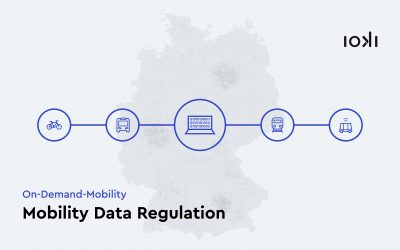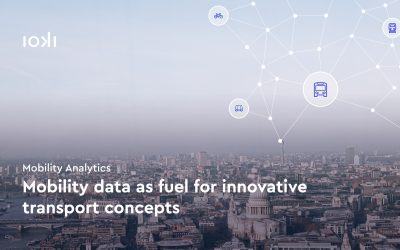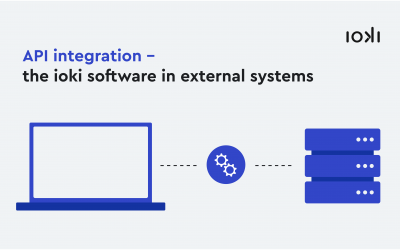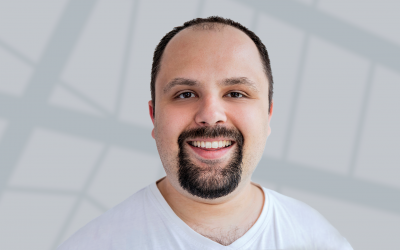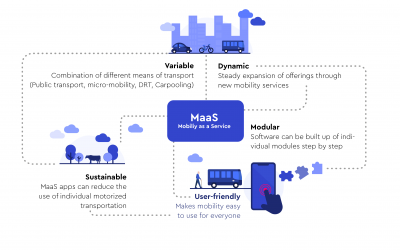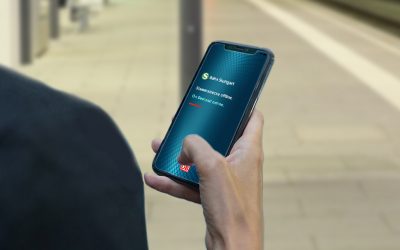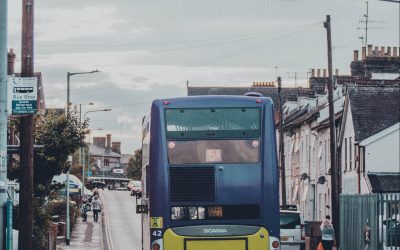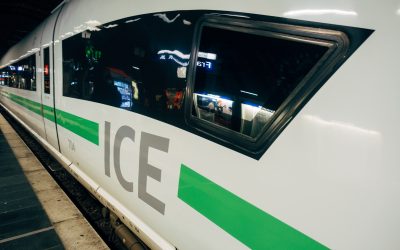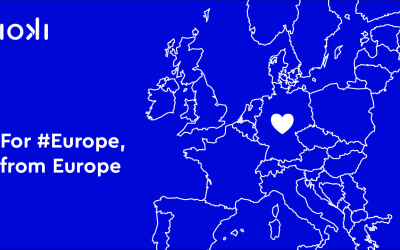Mobility Data Regulation
Last September, the starting signal was given for the large-scale use of mobility data in transport planning. The Federal Council has agreed on the implementation of the German Mobility Data Regulation. The new regulation makes it possible to make German mobility data available on the so-called Mobility Data Marketplace. For companies from the mobility sector, the new regulation enables access to data sets which were not available before. Through the use of these data sets in the mobility sector, customers will benefit from new, data-driven mobility concepts that are precisely tailored to the actual mobility needs on site.
Mobility data as fuel for innovative transport concepts
The desire for flexible, sustainable and above all contemporary mobility solutions is stronger than ever before. Digitalisation and the associated use of data are driving the further development of exactly these mobility solutions. Complex analytical models make it possible to link data from different sources, evaluate data quantities and obtain results in real time. Mobility and traffic data are thus the fuel for a demand-oriented, automated and above all customer-centric public transport system. But to what extent are digital and data-based applications changing the public transport sector?
API integration – the ioki software in external systems
What is behind the ioki API? “We are continuously working on our data storage and also on the connection and integration of our system into external systems,” says Andreas Schwarzkopf, Head of Backend Engineering at ioki. The Application Programming Interface, or API, can be used to integrate software into external systems. In the ioki case, this means integrating our operating system for digital mobility primarily into external Mobility as a Service (MaaS) platforms.
Perspectives from Andreas Schwarzkopf
Andreas has been out and about in the mobility universe since 2010: from flinc, to the DB fleet service, all the way to his position as Head of Backend Engineering at ioki, Andreas has already stopped off at a number of stations. At ioki, he uses his 20+ years of IT expertise to develop new architectures and individual components for our operating system. In addition, he enhances existing architectures, among other things to open up our operating system to other transport providers – in a customer-centric and demand-oriented way. Andreas, thank you very much for taking the time.
Perspectives from Tyll Diebold
Tyll Diebold is a research assistant at the Institute for Transport Planning and Logistics at TU Hamburg. He has provided scientific support for the ioki Hamburg project from the very beginning and recently published the study “On-demand services as a component of public transport”. After completing his Master of Science in «Logistics, Infrastructure and Mobility» at TU Hamburg in 2016, he initially worked for an engineering office for a year before returning to TU Hamburg to complete his doctorate.
Perspectives from Andrés Vargas Díaz
Andrés studied civil engineering and specialised in the planning and operation of transport systems as a part of his studies. He joined ioki’s Mobility Analytics team in 2019 and was influential in creating the study on public mobility in Germany.
Mobility as a Service: full speed ahead towards the mobility turnaround
Whenever we talk about the transport revolution and the associated restructuring of public transport, we cannot avoid the term «Mobility as a Service», abbreviated MaaS. But what exactly is «MaaS» and how can the digital approach help to sustainably advance the transport revolution?
Digital rail and on-demand rail replacement services
In Germany, up to 125 kilometres of rail are to be modernized by 2025. During the modernization, passengers will have to switch from rail to rail replacement services. This is also the case for passengers on the Stuttgart S-Bahn, while the main line there is being modernized this summer. Nevertheless, this rail replacement service is different, because: On weekends and weekend nights, it is main line offline – S-Bahn On-Demand online.
Perspectives from Alina Schuprin
As International Business Development Manager Alina Schuprin supports ioki’s mission to implement integrated mobility solutions not only on german roads, but all over Europe. Having a Master degree in industrial engineering Alina is experienced in anything that comes with digitalisation and its impact on established business areas. At ioki she combines this know-how with her personal goal to generate a positive impact on the environment with her daily work.
Great Britain’s Bus Market – Exploiting Potentials, Establishing Innovations
England’s national bus strategy, Bus Back Better, states that around 4.07 billion journeys were made by bus in England in 2019/20. This is more than double the number of journeys made by rail. Whether travelling to work, education or leisure, the bus is the UK’s number one public transport mode. However, not all that glitters is gold here either. Despite the high demand, there is room for improvement in terms of service quality, fares, capacity utilisation and efficiency of bus services. The outstanding fields that need to be tackled are primarily due to the deregulated market for bus services.
The future is green
The 150.7 million customer journeys made by Deutsche Bahn last year show that many people care about travelling sustainable. DB plays a major role in shaping the future of mobility in a climate-friendly way. In order to fulfil this role in line with requirements, our mother concern combines economy, social affairs and ecology aspects with each other.
Digital mobility solutions for Europe from Europe
The mobility transformation in Europe must be driven forward through modern, digital and inner-European platform solutions in order to create a real added mobility value. This added value can only be created through the development of holistic software solutions that enable public authorities and (transport) companies to integrate new forms of mobility across different modes of transport.

